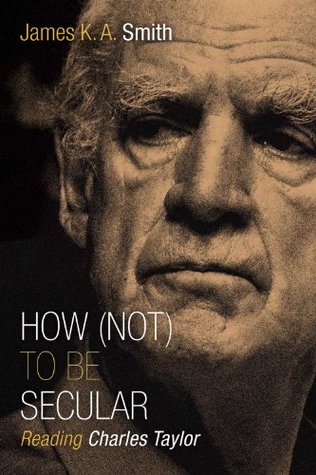More on this book
Community
Kindle Notes & Highlights
Read between
May 26 - August 12, 2020
Employing a kind of intellectual colonialism, new atheist cartographers rename entire regions of our experience and annex them to natural science and empirical explanation,
We don’t believe instead of doubting; we believe while doubting. We’re all Thomas now.
“I don’t believe in God, but I miss Him.”
“What’s the point of faith unless you and it are serious — seriously serious — unless your religion fills, directs, stains and sustains your life?”
What convinces us our knowledge is so final?
religion might just be true simply because it is beautiful.
the gospel is true because it is the most fantastic fantasy, the greatest fairy story ever told.
I don’t like those philosophers who have dismissed it as foolishness and humbug.
The doubter’s doubt is faith; his temptation is belief, and it is a temptation that has not been entirely quelled, even in a secular age.
God is dead, but he’s replaced by everybody else. Everything is permitted, but everybody is watching. So most of the time the best “salvation” we can hope for is found in behaviors that numb us to this reality: drugs, sex, entertainments of various sorts.
Secularization theorists (and their opponents) are barking up the wrong tree precisely because they fixate on expressions of belief rather than conditions of belief.
People who self-identify as “secular” are usually identifying as areligious.
A society is secular3 insofar as religious belief or belief in God is understood to be one option among others, and thus contestable (and contested).
vision of life in which anything beyond the immanent is eclipsed.
The “secular” is not just the neutral, rational, areligious world that is left over once we throw off superstition, ritual, and belief in the gods.
it’s more a matter of the difference between what we take for granted — what we don’t give a second thought — and what people of that age took for granted.
our contemporary lived understanding; that is, the way we naïvely take things to be.
this shift to a new “background” is not just true for exclusivist humanists; even believers believe in a way that also generally takes for granted this new background.
Once individuals become the locus of meaning, the social atomism that results means that disbelief no longer has social consequences.
You’re free to be a heretic — which means, eventually, that you’re free to be an atheist.
we are tracking those features of the premodern imaginary that needed to be abolished in order to create room not only for unbelief but also for the positive emergence of exclusive humanism as a live option for organizing both an individual life and whole societies.
The spiritual disciplines of the saint are a lot to ask of the nursemaid or the peasant laborer who is pressed by more immediate concerns.
we won’t understand 1968 — or 2018 — without some chronological archaeology that takes us back to 1518.
At its heart, Reform becomes “a drive to make over the whole society to higher standards”
Together these commitments begin to propel a kind of perfectionism about society that wouldn’t have been imagined earlier. Any gap between the ideal and the real is going to be less and less tolerated,
If people aren’t meeting the bar, you can either focus on helping people reach higher or you can lower the bar.
This is why Reform unleashes both Puritanism and the ’60s.
it will take centuries for this to become clear.
in Reform movements within Christendom, everyone is now expected to live all their lives coram Deo, before the face of God.
being in them, but yet at a distance, ready to lose them.
many people are happy living for goals which are purely immanent; they live in a way that takes no account of the transcendent”
“once we are well installed in the modern social imaginary, it seems the only possible one”
We are released to be the exclusive humanists we were meant to be when we escape the traps of superstition and the yoke of transcendence.
Humans are seen as fundamentally engaged in an “exchange of services,” so the entire cosmos is seen anthropocentrically as the arena for this economy
Mystery can no longer be tolerated.
economic dimension takes on greater and greater importance, and ‘economic’ (that is, ordered, peaceful, productive) activity is more and more the model for human behaviour”
But we barely notice, because our new focus on this plane had already moved the transcendent to our peripheral vision at best. We’re so taken with the play on this field, we don’t lament the loss of the stars overhead.
God is reduced to a Creator and religion is reduced to morality
This is the scaled-down religion that will be rejected “by Wesley from one direction, and later secular humanists from the other”
even though it rejects Christianity, exclusive humanism was only possible having come through Christianity.
would lead us to believe that a “secular” world is a cool, monolithic, “rational” age where everyone who’s anyone (i.e., smart people who are not religious) lives in quiet confidence.
eclipse of the transcendent, something may have
Inscrutability is no longer an option;
And in the face of evil, we can even begin to find a strange comfort in being alone, without God or the gods: “There is a kind of peace in being on my/our (human) own, in solidarity against the blind universe which wrought this horror.”
On the flip side there is also the sense of purposelessness and hopelessness. Ultimately, nothing matters since we all die after a short time anyway.
While this shift might have been prompted and amplified by increasing empirical evidence (geological evidence pointing to an older earth; astronomical evidence pointing to an expanding universe; etc.),


